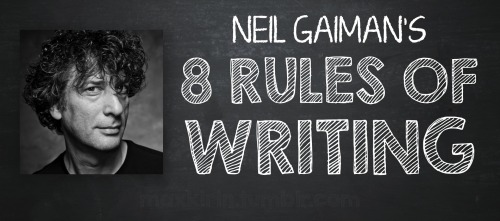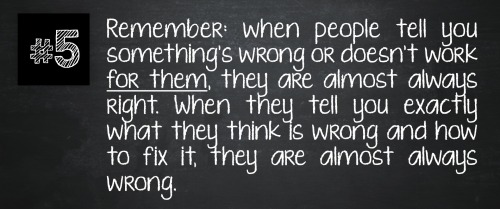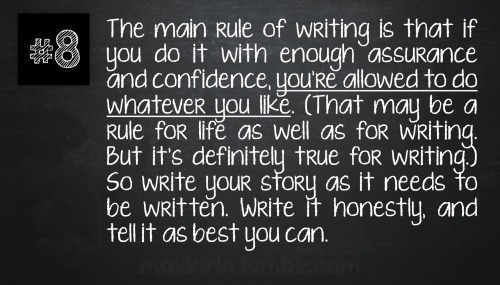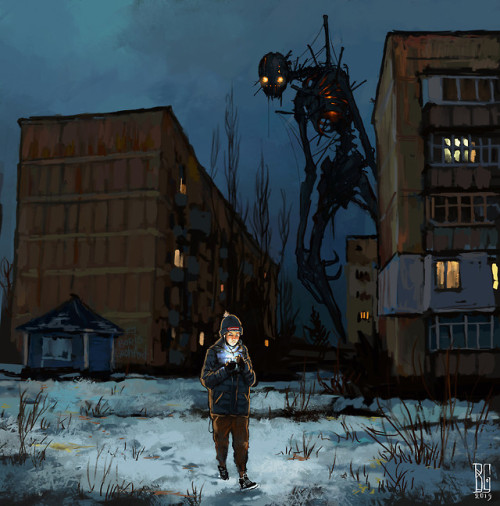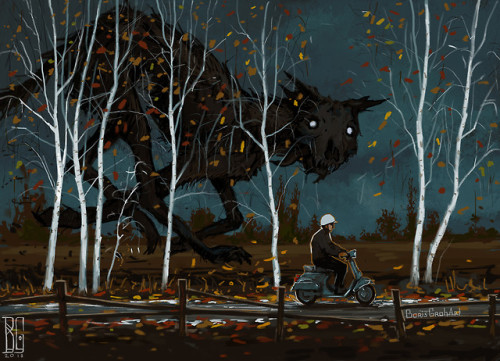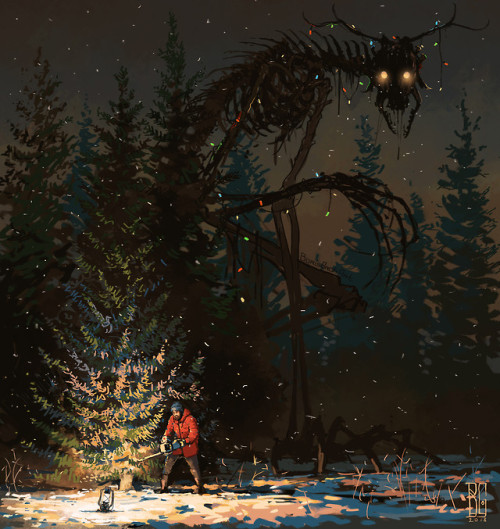There Are Many Primers On How To Start With Ursula K. Le Guin, All Of Them Perfectly Fine, But I Haven’t
There are many primers on how to start with Ursula K. Le Guin, all of them perfectly fine, but I haven’t seen any that just go with “Start with what’s available and easily accessible”.
“The Ones Who Walk Away From Omelas” is available online, and it’s only four typewritten pages. Confession: I hadn’t read this until today. You may think, as I did, because you know the story through osmosis (as probably many people who are familiar with sci-fi do) you don’t need to read it. You would be wrong.
This website has collated stories that are available online. They all appear to be from free sources like Baen, Lightspeed, and Clarkesworld.
On Le Guin’s personal website there is a great deal of stuff: poetry (original and in translation), book excerpts, interviews, and writing advice.
She blogged pretty extensively for many years, and there’s some lovely stuff in there. Her penultimate entry was about her cat Pard and the Time Machine. (just Ctrl + F for “pard” on the archive index. Trust me.)
Don’t let me stop you from going to the library or your online bookstore of choice to get her books, of course, but there’s plenty of stuff available that you don’t have to go very far to access.
More Posts from Agent-ishiguro and Others
all the tips I found for drawing a fantasy map are like :) “here’s a strategy to draw the land masses! here’s how to plot islands!” :) and that’s wonderful and I love them all but ??? how? do y'all decide where to put cities/mountains/forests/towns I have my map and my land but I’m throwing darts to decide where the Main Citadel where the Action Takes Place is
reminder to myself about the process of drafting & revising:
first drafts are for making it exist
second drafts are for making it functional
third drafts are for making it effective

Word Counter - Not only does it count the number of words you’ve written, it tells you which words are used most often and how many times they appear.
Tip Of My Tongue - Have you ever had a word on the tip of your tongue, but you just can’t figure out what it is? This site searches words by letters, length, definition, and more to alleviate that.
Readability Score - This calculates a multitude of text statistics, including character, syllable, word, and sentence count, characters and syllables per word, words per sentence, and average grade level.
Writer’s Block (Desktop Application) - This free application for your computer will block out everything on your computer until you meet a certain word count or spend a certain amount of time writing.
Cliche Finder - It does what the name says.
Write Rhymes - It’ll find rhymes for words as you write.
Verbix - This site conjugates verbs, because English is a weird language.
Graviax - This grammar checker is much more comprehensive than Microsoft Word, again, because English is a weird language.
Sorry for how short this is! I wanted to only include things I genuinely find useful. p>
some people think writers are so eloquent and good with words, but the reality is that we can sit there with our fingers on the keyboard going, “what’s the word for non-sunlight lighting? Like, fake lighting?” and for ten minutes, all our brain will supply is “unofficial”, and we know that’s not the right word, but it’s the only word we can come up with…until finally it’s like our face got smashed into a brick wall and we remember the word we want is “artificial”.
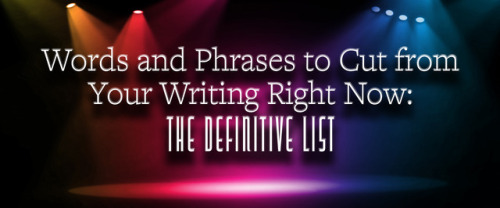
So, so many works I’ve read could be vastly improved with tightening and shaving of superfluous words. Wordiness is an easy stumbling block, as we’re used to how we talk. We’re used to how others (long ago) wrote. But times change, my friend, and so do expectations of the writer. We don’t get paid by the word in fiction. So show your smarts and say as much as you can with as much power as you can in as few words as possible.
Here are a few things you can cut without reserve to help shorten your story right now. And as you catch yourself using these words in your next draft, hit that backspace before you finish the sentence! It’s okay if you already have. You can go delete them now. No one will ever know.

Moment/Second/Minute
It’s so tempting. I am guilty of using this word like fertilizer in my first drafts. But most of the time, these words aren’t needed at all. They add nothing.
He sat down for a moment, sipping his coffee. vs. He sat down and sipped at his coffee.
But he only did it for a moment, you say!
He sat down for a moment, sipping his coffee. When the door opened a second later, he shot to his feet. vs. He sat down and sipped his coffee. The door opened, and before he could swallow his first sip, he shot to his feet.
I know, this is about making your writing more concise and my “right” example has more words than the first example. But what’s the difference? The words used in the second sentence are more tangible. They give a visual that “a second later” and “for a moment” don’t. And you could leave that part out, of course, if you’re really going for trimming word count. It doesn’t paint quite the same image, but “The door opened and he shot to his feet.” is a perfectly good sentence.
Suddenly/All of a sudden
You’ve heard this one, before, surely. These words are used…when? When you’re trying to portray suddenness. Surprise, perhaps. So why are you adding in extra words to slow down the pace?
She flipped on the TV and reclined in her chair. All of sudden, the TV flashed a bright light and the power went out. vs. She flipped on the TV and reclined in her chair. The TV flashed once before the lights went dark. The power was out.
That sense of immediacy is felt when stuff just happens. So let it happen. If it’s rhythm you’re worried about, then find more useful words to create the rhythm. Notice that I didn’t just cut “All of a sudden” out of the sentence and leave it. I reworded it a bit to make it stronger.
Finally
It can be a useful word, but more often than not, it’s just taking up space.
Really/Very
Just…delete them.
To alter a Mark Twain quote:
“Substitute ’[fucking]’ every time you’re inclined to write ‘very;’ your editor will delete it and the writing will be just as it should be.”
But seriously, if you’re saying, “She was breathing very hard.” You could just cut the “very” and say, “She was breathing hard.” Or, even better, “She was panting.” Or, EVEN BETTER: “She panted.”
Himself/herself/myself/themselves
Reflexive nouns have a specific purpose, though they can still often be avoided. They fall into the category of “use only when it’s confusing otherwise.”
Correct: He looked at himself in the mirror. Better: He looked in the mirror.
Incorrect: She gave them to Andrew and myself before leaving. Correct: She gave them to Andrew and me before leaving.
Technically correct I guess: I haven’t eaten lunch myself. (Intensive pronoun; aka waste of words) Better: I haven’t eaten lunch.
Intensive pronouns add emphasis, but that emphasis is negligible and often negated by the power of tightening your narrative.
That
You can likely cut 60% of your “that"s and your story will be unaffected. Sometimes, you do need to add a “that” here and there for clarification, but not always. And sometimes it’s just plain incorrect.
The jacket was the coolest one that he’d ever owned. vs. The jacket was the coolest one he’d ever owned.
In other cases, you might do well to substitute “that” with “which.” Though, if you’re doing this, make sure you do it properly. That change can often alter the meaning of your sentence. That can be for the better, though.
The vandalism that read “Bad Wolf” made Rose nervous. vs. The vandalism, which read “Bad Wolf,” made Rose nervous.
Do you see the difference? In the first sentence, the words are what make Rose nervous. In the second, the vandalism itself makes Rose nervous, and it happens to say “Bad Wolf.” In this case, if you’ve watched Doctor Who, then you know the first example is the correct one.
So when you’re sharing details using “that” or “which,” contemplate how important they are to meaning of the sentence to determine which type of clause you need to use.
Then
Or worse, “And then.”
It makes your writing sound a bit juvenile. Either cut it entirely, or substitute “and.”
She jumped into the pool, then hit her head on the bottom. vs. She jumped into the pool and hit her head on the bottom.
And then, after all that time, she fell asleep. vs. After all that time, she fell asleep.
Even
Sometime “even” can help emphasize a situation or behavior, but when it’s used in narrative improperly, it sounds childish and silly.
He couldn’t even breathe. vs. He couldn’t breathe.
Even with the new hair gel, his hair was terrible. (This one is fine, though you could still cut that “even” if you really wanted to…)
Just
Just…Delete it.
Breathe/breath/exhale/inhale/sigh/nod/shrug
Another one I’m so guilty of. In my first drafts, I tend to talk about how a character is breathing, or when they’re sighing like nobody’s business. I know a lot of writers who are guilty of this, too. It’s a great tool to use scarcely. In intense moments, you can let your character take a final deep breath to calm themselves. When a character almost drowns, those first few sweet breaths are important. But you readers know that people breath all the time. And just because you need a beat in your dialogue doesn’t mean you need to remind your reader that the character is still breathing or moving.
Rather/quite/somewhat
She was rather tall. She was tall. He was quite idiotic. He was idiotic. They were somewhat snazzy. They were snazzy. Why do you need those words? Kill ‘em.
Start/begin
This is a great example of fluff.
She started to run toward the shop. vs. She ran toward the shop.
He began scolding them for their performance. vs. He scolded them for their performance.
There are obviously uses for this word, like anything. He started the car. Begin your tests! But when you’re using it to slow the action and the pace of your narrative, then consider heavily if you need it. You probably don’t.
In order to/in an attempt to
Phrases that add unneeded complications, cumbersome wording…kill ‘em!
She bit down in an attempt to stop herself from screaming. vs. She bit down to stop herself from screaming.
Was able to
He was able to call. vs. He could call. OR He called.
This is one that isn’t inherently bad, but it can easily be overused and cutting it will help simplify your narrative.
Due to
Ugh. Are you trying to sound proper and stuffy? Because that’s a reason, I guess, to use this phrase…and yet it sounds like doodoo. (Yes. I’m an adult.) Rephrase. Use “Because of” or just avoid the need altogether.
We stopped due to traffic. vs. We stopped because of traffic. OR (Strength of narrative!) We stopped mid-highway. The parked cars went on beyond the curve of the road, out of sight.
Visibly/obviously/apparently/audibly
These are a sign of telling in your narrative when you should probably be showing.
She was visibly shaking. –> She shivered, hugging her upper arms. He was obviously tired. –> He yawned and tripped on his own feet as he crossed the room. They were apparently angry. –> They stomped and shouted, demanding attention. She screamed audibly. (Really?) –> She screamed.
Don’t tell your readers what emotion a character is feeling. Instead, give a few clues that they can see/hear/feel the emotion too.
While
This word has lots of legitimate uses. However, if you’re using it poorly, then your narrative reads like an Early Reader’s book, and you (unless that’s what you’re writing) probably don’t want that.
“Get it together,” he said while flipping them off. vs. “Get it together,” he said, flipping them off.
Turned
One of the classics. So overused, my friends. It’s needed on occasion, but not nearly as often as we use it. Just cut it out.
They turned toward her as they spoke. vs. They gave her their full attention as they spoke. OR They looked into her eyes. OR (Nothing. Readers don’t have to be updated on every little movement.)
Saw/looked/regarded
UGH. Regarded:Looked::Mentioned:Said
And, like “said,” many, many instances of these words can be nixed.
She saw them run for the hills. vs. They ran for the hills.
This can be tricky, I know, when you’re writing in limited-third or first POV. It’s tempting to put every action directly through your POV character’s filter. But resist that temptation! There are times when it’s appropriate, occasionally, but it can be overdone so easily.
I looked at her and said, “Please.” vs. I said,“ Please.” OR. I took her hand. “Please.”
This example sides with the breathing and the turning. It’s often an unneeded update on the tiny movements of the characters. And, again, sometimes you need that beat or that little detail in an intense moment, but not often.
Said/replied/stated/spoke/mentioned/asked/commented/yelled/cried/shouted
I’m not here to tell you to cut all your dialogue tags (please don’t). I’m also going to the last person who insists you get rid of “said.” In fact, I’m in the “said is invisible” party of writing nerds and I think, if you’re going to use a standard tag, it should be “said” 90% of the time.
But aside from that, using as few dialogue tags as possible is a good thing. I’ll do a full post on this soon, but for now, be aware of how often you rely on these words in your dialogue and do your best not to overuse them. Use surrounding action and context to take some of the reliance off of these words.
To-Be in all its conjugated forms
If you’re using any of this list:
am, is, are, was, were, be, being, had been
Then check yo'self. Some tenses call for an auxiliary verb. Some types of sentence do, too, not doubt about it. But many don’t, and cutting to-be verbs when you can will help tighten your writing.
We were going to the store. vs. We went to the store.
Sounds were echoing through the chamber. vs. Sounds echoed through the chamber.
To-be verbs can also be an indicator of passive voice, though they aren’t always.
He was hit by the ball. vs. The ball hit him.
Last but not least, check all of your adverbs.
Chances are, if you’re using an adverb, you could be using a single strong verb instead and giving each sentence more punch.
He ran quickly. –> He sprinted. I hit him hard. –> I socked him. She spoke quietly. –> She whispered. They ran into each other fast. –> They crashed.
So what am I supposed to do about this?
Take it to heart. Try not to let these words take over your brain as you write. Once your manuscript is finished, try this method:
Use Find and Replace. Replace any and all of the aforementioned words in ALL-CAPS. Now, if you’ve paid attention to my advice in using emphasis, then those all-caps will really stick out as you’re reading over your work and you can decide at each instance whether your usage is appropriate, or if it needs to be rewritten. As I did to this very old draft of mine from my first NaNoWriMo (in which I used every single word on this list, I’m sure).

When I used this method with my most recent WIP, I was able to cut my word count from 105k to 93k without cutting any content whatsoever. It takes a lot of work and it’s pretty tedious but the results are amazing!

It wouldn’t be the English language without exceptions, would it?
Now, there is actually an important time for intentionally using any or all of the words on this list. You know when that is?
When it fits the character’s voice. - More on this in my next post!
music for your moods part 2
a live band is playing in a bar, you haven’t slept for two days we aren’t strangers when we hold champagne chutes in our hands white bedsheets and spilled hair the lights casted on the ceiling are spinning just as we are the 10th person i’ve slashed my sword against theres a big tree in the middle of the room windows rolled down, sharp sting of the wind against my hands here comes… another one of them locked in with moving rides and flickering lights part 1
Surnames are just as important as given names. So, I compiled a list of the websites I use to find my surnames.
English Surnames
Dutch Surnames
Spanish Surnames
Scottish Surnames
German Surnames
Italian Surnames
Irish Surnames
French Surnames
Scandinavian Surnames
Welsh Surnames
Jewish Surnames
Surnames By Ethnicity
Most Common Surnames in the USA
Most Common Surnames in Great Britan
Most Common Surnames in Asia
-
 xocowilde reblogged this · 1 month ago
xocowilde reblogged this · 1 month ago -
 lithe-lilac liked this · 1 month ago
lithe-lilac liked this · 1 month ago -
 iprocrastinateeverything reblogged this · 1 month ago
iprocrastinateeverything reblogged this · 1 month ago -
 phantasieandmirare liked this · 1 month ago
phantasieandmirare liked this · 1 month ago -
 the-book-life-chose-me reblogged this · 1 month ago
the-book-life-chose-me reblogged this · 1 month ago -
 doyoupraisethewalls liked this · 1 month ago
doyoupraisethewalls liked this · 1 month ago -
 snarkissist reblogged this · 2 months ago
snarkissist reblogged this · 2 months ago -
 snarkissist liked this · 2 months ago
snarkissist liked this · 2 months ago -
 piethon reblogged this · 2 months ago
piethon reblogged this · 2 months ago -
 formyemptymind reblogged this · 2 months ago
formyemptymind reblogged this · 2 months ago -
 unicornpsyche reblogged this · 2 months ago
unicornpsyche reblogged this · 2 months ago -
 schaduwwolfsworld reblogged this · 2 months ago
schaduwwolfsworld reblogged this · 2 months ago -
 sitcomprophet liked this · 2 months ago
sitcomprophet liked this · 2 months ago -
 dumbhero reblogged this · 2 months ago
dumbhero reblogged this · 2 months ago -
 dumbhero liked this · 2 months ago
dumbhero liked this · 2 months ago -
 imaginaryaureate reblogged this · 2 months ago
imaginaryaureate reblogged this · 2 months ago -
 morestarlessdust liked this · 3 months ago
morestarlessdust liked this · 3 months ago -
 youngverse reblogged this · 3 months ago
youngverse reblogged this · 3 months ago -
 wherefairytaleslive reblogged this · 3 months ago
wherefairytaleslive reblogged this · 3 months ago -
 wherefairytaleslive liked this · 3 months ago
wherefairytaleslive liked this · 3 months ago -
 ivorywirepearls reblogged this · 3 months ago
ivorywirepearls reblogged this · 3 months ago -
 ivorywirepearls liked this · 3 months ago
ivorywirepearls liked this · 3 months ago -
 greyjioys reblogged this · 3 months ago
greyjioys reblogged this · 3 months ago -
 leofrith liked this · 3 months ago
leofrith liked this · 3 months ago -
 fatpinkbitch reblogged this · 3 months ago
fatpinkbitch reblogged this · 3 months ago -
 fatpinkbitch liked this · 3 months ago
fatpinkbitch liked this · 3 months ago -
 kickair8p reblogged this · 3 months ago
kickair8p reblogged this · 3 months ago -
 turretangel reblogged this · 3 months ago
turretangel reblogged this · 3 months ago -
 amiswritingcorner reblogged this · 3 months ago
amiswritingcorner reblogged this · 3 months ago -
 ainulindaelynn reblogged this · 3 months ago
ainulindaelynn reblogged this · 3 months ago -
 cubitumaemus reblogged this · 3 months ago
cubitumaemus reblogged this · 3 months ago -
 hastor liked this · 3 months ago
hastor liked this · 3 months ago -
 concretedesk liked this · 3 months ago
concretedesk liked this · 3 months ago -
 murasakinoami liked this · 3 months ago
murasakinoami liked this · 3 months ago -
 beansterpie liked this · 3 months ago
beansterpie liked this · 3 months ago -
 thenightisland reblogged this · 3 months ago
thenightisland reblogged this · 3 months ago -
 vital-qualia reblogged this · 3 months ago
vital-qualia reblogged this · 3 months ago -
 nihalley-x liked this · 4 months ago
nihalley-x liked this · 4 months ago -
 karadenizin reblogged this · 4 months ago
karadenizin reblogged this · 4 months ago -
 zamanparadoksu reblogged this · 4 months ago
zamanparadoksu reblogged this · 4 months ago -
 burnt--celery liked this · 4 months ago
burnt--celery liked this · 4 months ago -
 bonny-beannighe liked this · 4 months ago
bonny-beannighe liked this · 4 months ago -
 rdlain liked this · 4 months ago
rdlain liked this · 4 months ago -
 radfem-suggestion reblogged this · 4 months ago
radfem-suggestion reblogged this · 4 months ago -
 yagi-no-eda liked this · 4 months ago
yagi-no-eda liked this · 4 months ago -
 greentea-honey-lemon liked this · 4 months ago
greentea-honey-lemon liked this · 4 months ago -
 katanashipping liked this · 4 months ago
katanashipping liked this · 4 months ago -
 kjokay reblogged this · 4 months ago
kjokay reblogged this · 4 months ago -
 demonweed reblogged this · 4 months ago
demonweed reblogged this · 4 months ago -
 cobaltqueen liked this · 4 months ago
cobaltqueen liked this · 4 months ago
things that might inspire me or help with with my writing skills
55 posts
